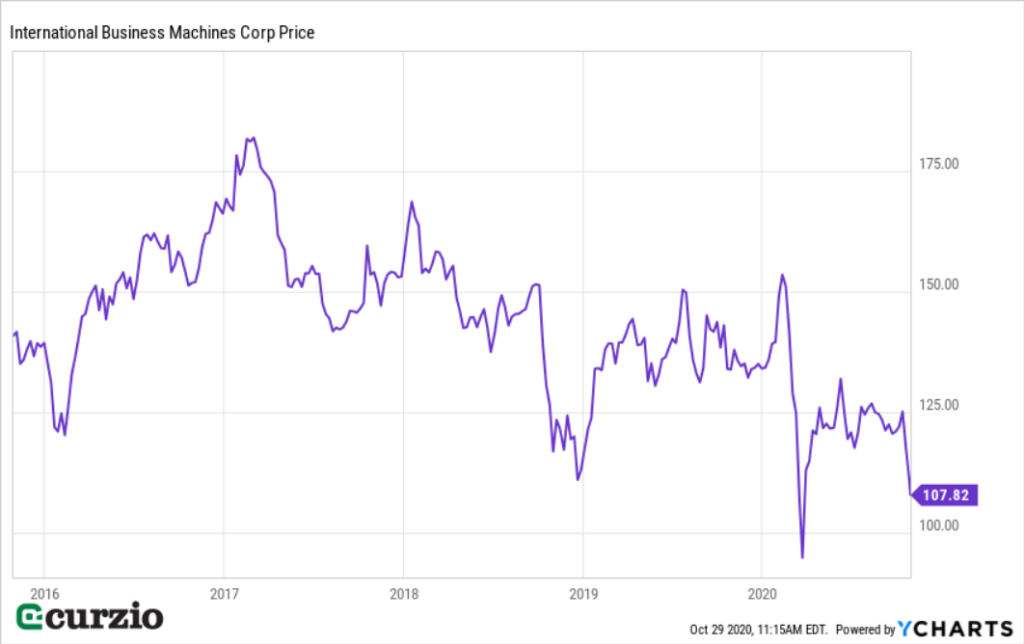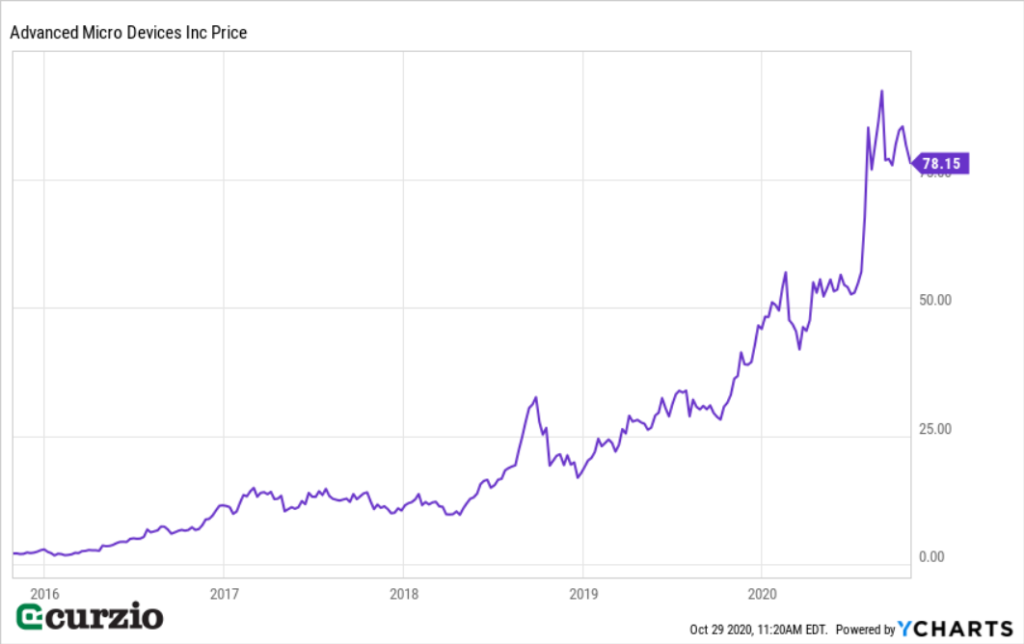Last week, I explained the basics of blockchain, the incredible technology behind digital currencies like bitcoin.
Now that we’ve covered the basics, it’s time to think about how investors can profit from the coming blockchain boom.
As I mentioned last week, blockchain is about to change the way business gets done. Thousands of companies are working to find ways to incorporate the technology to solve problems and improve processes.
In other words, the trend is growing far beyond cryptocurrencies like bitcoin and ethereum.
That’s great news for investors. It means you can generate big gains without venturing into cryptocurrencies, which could be too volatile for some investors.
Today, I’ll go over two companies poised to benefit from blockchain’s growth. Each has its own strategy for capitalizing on the trend.
The first name offers software and services to help customers build their own blockchain projects.
The second company has a booming hardware business that will benefit from the growing demand for processing power (an important ingredient to running blockchain-based networks).
If you’re not interested in blockchain per se, don’t worry. These two publicly-traded companies have more to offer beyond their blockchain stakes. The blockchain growth trend only adds to their investment story… and with time, the contribution of blockchain to their bottom line will grow.
And as you read last week, there’s a lot of growth coming…
Blockchain play No. 1: IBM
IBM is a household name in the tech industry, raking in around $75 billion in annual sales by offering a wide range of software and services to massive corporate customers.
This tech giant, though, has fallen behind the industry leaders recently—and is in dire need of establishing a strong foothold in a growing market.
Blockchain has all the potential to become such a market for IBM.
IBM was one of the first big tech names to recognize the growth potential of blockchain-based systems. Back in April 2015, it launched the IBM Blockchain Platform—a service that lets customers create blockchain-based systems for their businesses, or all the tools they need to build and operate their own blockchain networks.
And although companies are still in the early stages of figuring out how to use blockchain, IBM already has some notable success stories. One of its customers, Nordea, built a blockchain-based trading platform to help major European banks execute international trades. IBM’s working with Kroger—the supermarket giant—to create a blockchain-based system for tracking their produce from the farm to the store shelf.
The number of business applications that can be transformed using blockchain far exceeds the two cases above.
For example, one customer is using IBM’s platform to build a ticketing system for concerts and sporting events. By incorporating blockchain technology, the system aims to eliminate the possibility of counterfeiting, which is a huge problem in the ticket industry. (You can read more about the various projects IBM is involved in here.)
By jumping into blockchain early, IBM has an early lead in providing blockchain services to corporate customers. The company says it already has over 2,000 “blockchain experts.” It’s currently working with more than 20 consortiums to help improve industries including food supply and cargo shipping.
IBM (IBM), 5-year chart

Meanwhile, IBM is quietly building a patent portfolio that could become extremely valuable over time. The company ranks just behind Alibaba (BABA) in terms of blockchain patent applications. A very cheap stock with a 6% yield, IBM is the “value” blockchain play within the tech sector.
Blockchain play No. 2: AMD
As a growth-stock blockchain play, I suggest a semiconductor leader: Advanced Micro Devices (AMD).
After trailing Intel for years, AMD scored a huge success when it released its line of Ryzen processors in 2017. As a result, AMD’s computing and graphics business grew by more than 135% in just three years.
Like IBM, AMD noticed the growth potential of the blockchain market years ago, when the company saw a surge in demand for its latest processors from cryptocurrency miners. As a reminder, some cryptocurrencies (like bitcoin) are set up to reward “miners” for the use of their computer power.
AMD’s executives, including CEO Lisa Su, see the potential for blockchain to disrupt a wide range of industries. For AMD it’s a huge opportunity, because most blockchain systems require a lot of computing power. That means an increase in demand for the latest, most powerful, and highly specialized processors and graphics cards.
AMD says it’s “working with existing ecosystem partners to bring blockchain compute solutions to market for a large variety of use cases and exploring opportunities with new and innovative platforms using blockchain.” In other words, it’s still in the early stages of figuring out how to fully capitalize on growth beyond the cryptocurrency market.
Unlike IBM, though, AMD is largely a hardware play. It’s been leading its peers since its graphic cards powered cyber mining… and it’s set to keep its hand on the pulse of blockchain as well. One way it does this is its membership in the Blockchain Game Alliance, an organization dedicated to promoting blockchain within the gaming industry.
In partnership with leading technology providers, AMD aims to help promote the development and proliferation of new blockchain-powered gaming platforms. Semiconductor companies simply cannot afford to let this opportunity pass: There are 2.7 billion gamers in the world, and they’ll collectively spend more than $200 billion by 2023.
But AMD’s blockchain interest doesn’t end there. It aims to provide technologies to power a broad range of new blockchain-powered applications, services and use cases spanning industries, including gaming, cloud computing, the Internet of Things, healthcare—and more.
Advanced Micro Devices (AMD), 5-year chart

AMD isn’t a cheap stock, not by any measure. But its $35 billion acquisition of competing chip company Xilinx (XLNX)—for which AMD will pay in stock, not in cash—has the potential to help AMD in its market-share fight with Intel (INTC) while pressuring the company’s share price… and might prove an excellent long-term buying opportunity.
Even if you invest in digital tokens or bitcoin, don’t overlook equities that have a stake in blockchain. As the technology matures, these stocks will benefit.
Next week, I’ll talk more about the financial technology (fintech) industry… and an early-stage fintech company with the potential to disrupt the insurance market… along with other industries. It’s an interesting play for investors courageous enough to own a potential game-changer at a very early stage.
Stay tuned…
Editor’s note:
Frank calls companies on the leading edge of blockchain tech “cryptostocks.” And one of these names is already up over 200% for Curzio Research Advisory members.
Sign up for your risk-free trial here—and you’ll not only have access to Frank’s favorite blockchain plays, but his Secret Cryptostock Playbook—an 11-point system for identifying cryptostock winners…























